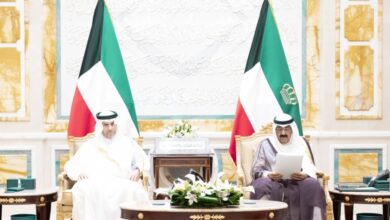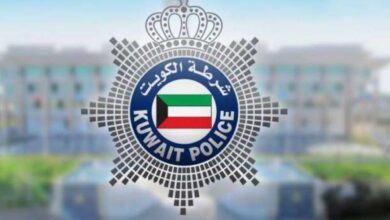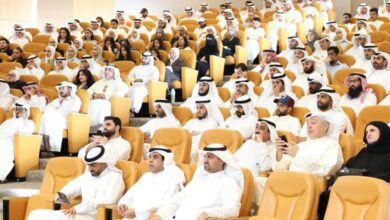A rising India under Prime Minister Narendra Modi
Prime Minister of India, Narendra Modi, since assuming office in 2014, embarked on a transformative journey, leading India through profound economic, social, and geopolitical changes. It is noteworthy that under Modi’s remarkable leadership, India has emerged solidly as a rising global power, reshaping its role on the world stage, in almost every sphere.

THE TIMES KUWAIT REPORT
Under the very able and dynamic leadership of PM Modi, the initiatives in economic reform, infrastructure development, social welfare, and strategic diplomacy have propelled the nation forward and positioned it for sustained growth and influence.
One of the cornerstones of PM Modi’s historical tenure has been his focus on economic reforms. Initiatives like ‘Make in India’, ‘Digital India’, and ‘Startup India’ have been pivotal in driving growth by boosting manufacturing, enhancing digital infrastructure, and promoting entrepreneurship.
As a result, these programs have attracted substantial foreign investment, created millions of jobs, and fostered a vibrant ecosystem of innovation, setting the stage for India’s transformation into a global economic powerhouse.
Innovation in India’s taxation ushered the implementation of the Goods and Services Tax (GST), which has seamlessly streamlined India’s tax system, making it more efficient and business-friendly, especially by reducing complexity and enhancing transparency.
Moreover, the Insolvency and Bankruptcy Code (IBC) has significantly improved the ‘ease of doing business’ by establishing a clear and efficient framework for resolving insolvencies, thus encouraging entrepreneurship and investment with enhanced clarity and productivity.
India’s rich history and vividly mammoth legacy has sustained since several millennia due to its formidable infrastructure, and perceiving this as a futuristic foundation, Hon’ble PM Modi’s government has placed a strong emphasis on infrastructure development, recognizing its crucial role in driving economic growth.
The ambitious ‘Bharatmala’ and ‘Sagarmala’ projects aim to significantly improve road and port connectivity across the country. Additionally, the development of ‘smart cities’ and the expansion of the railway network, which is among the densest and world’s largest, are integral components of this infrastructure push, aiming to modernize and streamline India’s transportation and urban systems for enhanced efficiency and seamless connectivity.
The ‘Pradhan Mantri Awas Yojana’ (PMAY) seeks to provide affordable housing for all, helping millions of families achieve homeownership. Meanwhile, the ‘Ujjwala Yojana’ has brought clean cooking fuel to millions of households, significantly improving living standards and stimulating economic activity. These initiatives have been instrumental in enhancing quality of life and fostering sustainable growth across the nation.
PM Modi being a visionary beyond the ordinary, during his memorable tenure, there has been a strong focus on social welfare and inclusion, signifying India’s unity in diversity.
The ‘Jan Dhan Yojana’ has brought millions of unbanked citizens into the formal banking system, promoting financial inclusion. The ‘Ayushman Bharat’ scheme, also known as the National Health Protection Scheme, aims to provide health insurance coverage to over 100 million families, making quality healthcare more accessible and affordable. These initiatives have been crucial in ensuring that India’s fast-paced growth benefits all its citizens.
The ‘Swachh Bharat Abhiyan’ (Clean India Mission) has been instrumental in improving sanitation and hygiene across the country, with the ambitious goal of making India open-defecation-free. These initiatives have had a profound impact on public health and significantly enhanced the quality of life for millions of citizens. By promoting cleanliness and hygiene, the Swachh Bharat Abhiyan has contributed to a healthier and more prosperous nation.
As a crucial development, under Hon’ble PM Modi leadership, India has significantly strengthened its geopolitical influence. The ‘Act East’ policy has deepened ties with Southeast Asian nations, fostering greater economic, cultural, and strategic cooperation.
Meanwhile, the ‘Neighborhood First’ policy has prioritized improving relations with neighboring countries, enhancing regional stability and security. India’s strategic partnerships with the United States, Japan, and Australia have been bolstered, positioning it as a key player in regional security and economic cooperation.
India’s active participation in international forums like the United Nations, G20, and BRICS has significantly enhanced its status as a key global player. Hon’ble PM Modi’s diplomatic engagements have led to numerous defense and trade agreements, which have been crucial in advancing India’s strategic and economic interests. These efforts have not only strengthened bilateral ties but also positioned India as a critical player in addressing global challenges.
While India has made significant strides under Hon’ble PM Modi’s leadership; there remain notable challenges that require ongoing focus. Economic disparities, unemployment, and the need for greater environmental sustainability continue to be pressing issues. Additionally, the COVID-19 pandemic posed unprecedented challenges, affecting public health and the economy.
Looking ahead, India’s future prospects under Hon’ble PM Modi’s leadership are promising. Continued focus on economic reforms, infrastructure development, social welfare, and geopolitical engagement will be crucial in sustaining the nation’s growth trajectory.
As India navigates global challenges and seizes opportunities, its rise as a global power is set to continue, driven by the vision and leadership of Prime Minister Narendra Modi.














